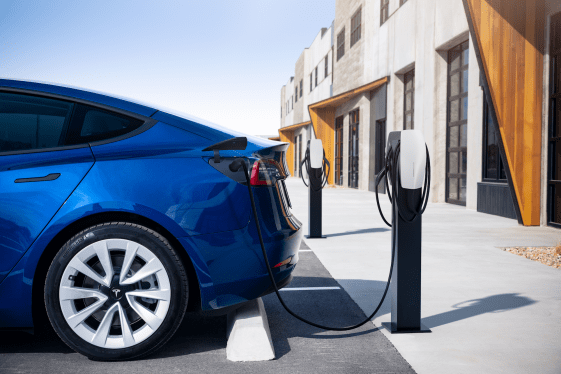Background
Several Tesla owners have filed a proposed class action lawsuit against the U.S. automaker over allegations of consumer fraud. The claim centers on the company’s history of exaggerating the range estimates of its electric vehicles (EVs). This development comes shortly after a Reuter investigation exposed these practices. The lawsuit, Porter et al v. Tesla, Inc., was filed August 2 in the U.S. District Court for the Northern District of California. Law firm Milberg Coleman Bryson Phillips Grossman is representing the Tesla owners in this case.
Lawsuits Highlight Consumer Fraud
The lawsuit alleges that Tesla violated state consumer fraud statutes by falsely advertising the range of its EVs. Lawyers representing the Tesla owners claim that the company "grossly overvalued" the range, which is the estimated distance a vehicle can travel on a single battery charge. The plaintiffs argue that this tactic was preying on the most important feature of EVs—longer range—for higher sales.
Backlash and Public Reaction
Last week, Reuter reported extensively on these issues, revealing that Tesla had indeed inflated its range estimates. Owners flooded its service centers seeking help after concerns emerged that their vehicles might require additional maintenance due to lower-than-expected ranges. The investigation cites anonymous sources within the company, including CEO Elon Musk, who reportedly directed employees to use algorithms for generating rosier range numbers.
Countermeasures by Tesla
In response to public backlash and increased service requests, Tesla implemented a series of measures to manage customer inquiries. To curb the influx of range-related complaints, the automaker created a special "diversion team." This team was tasked with addressing owner concerns about lower-than-expected ranges by educating them that EPA-approved range estimates were merely predictions. Additionally, team members provided tips on extending battery life, such as optimizing charging schedules and utilizing auxiliary fuel tanks.
Financial Impact
The implementation of this diversion team aimed to reduce Tesla’s financial burden from handling an influx of service requests. According to the Reuter investigation, the team was estimated to save the company over $1,000 per visit by canceling as many appointments as possible.
Tesla’s Marketing Tactics
The lawsuit further alleges that Tesla’s aggressive marketing tactics played a significant role in the surge of range-related complaints. The company advertised its EVs with exaggerated range estimates, creating unrealistic expectations among consumers. This tactic was particularly harmful to owners who were unaware of the nuances behind the stated ranges.
Tesla’s Response and Compensation
In light of this growing evidence of consumer deception, Tesla has reportedly taken steps to address the issue. However, the automaker is facing mounting pressure from owners seeking recompense for the misleading advertising practices. The proposed class action aims to hold Tesla accountable by recovering damages from the company for its alleged violations of consumer fraud laws.
Context and Significance
This case represents a significant moment in the automotive industry’s ongoing struggle with transparency and ethical marketing practices. The allegations against Tesla touch on fundamental principles of trust and honesty, which are essential for building a reliable brand reputation. If successful, this lawsuit could set a precedent for how companies must balance innovation and marketing strategies while maintaining consumer trust.
Tesla’s Background
Tesla has faced numerous challenges in its history, including recalls, safety issues, and regulatory scrutiny. Its reliance on EVs, however, remains a cornerstone of its growth strategy. While the company continues to innovate with next-generation vehicles like the Cybertruck, the ongoing debate over its marketing tactics highlights the need for greater transparency in the EV industry.
Legal Implications
The proposed class action could have far-reaching implications for Tesla and other automakers. If awarded damages, Tesla may be forced to implement stricter measures to ensure accurate and honest communication with consumers regarding vehicle capabilities. This case also underscores the importance of regulatory oversight in preventing deceptive practices that harm consumer welfare.
Conclusion
The Tesla vs. owners range dispute is a prime example of how companies must navigate the delicate balance between innovation and ethical business practices. As the legal battle continues, it will be crucial to assess whether Tesla can maintain its reputation for pushing the boundaries of automotive technology while also addressing the concerns of its customers. This case serves as a reminder that ethical behavior in marketing is not only good corporate citizenship but also essential for long-term brand sustainability.




